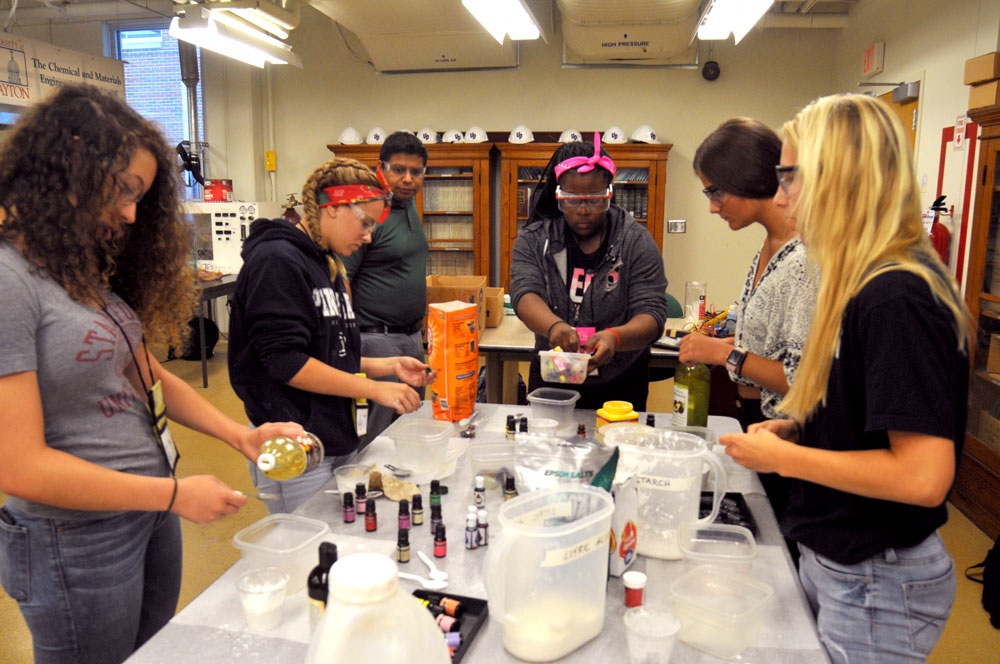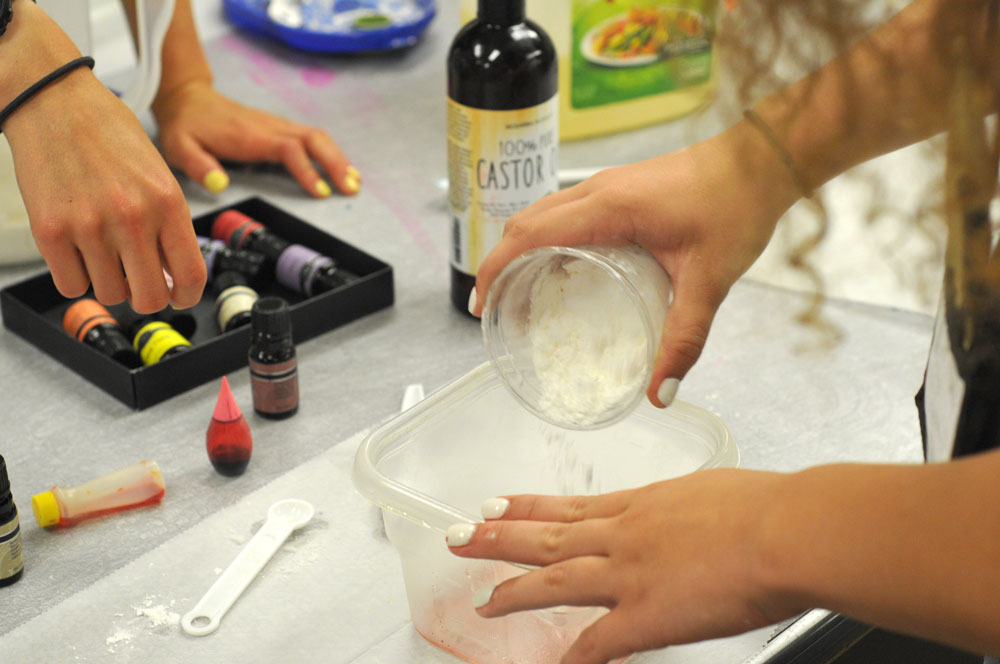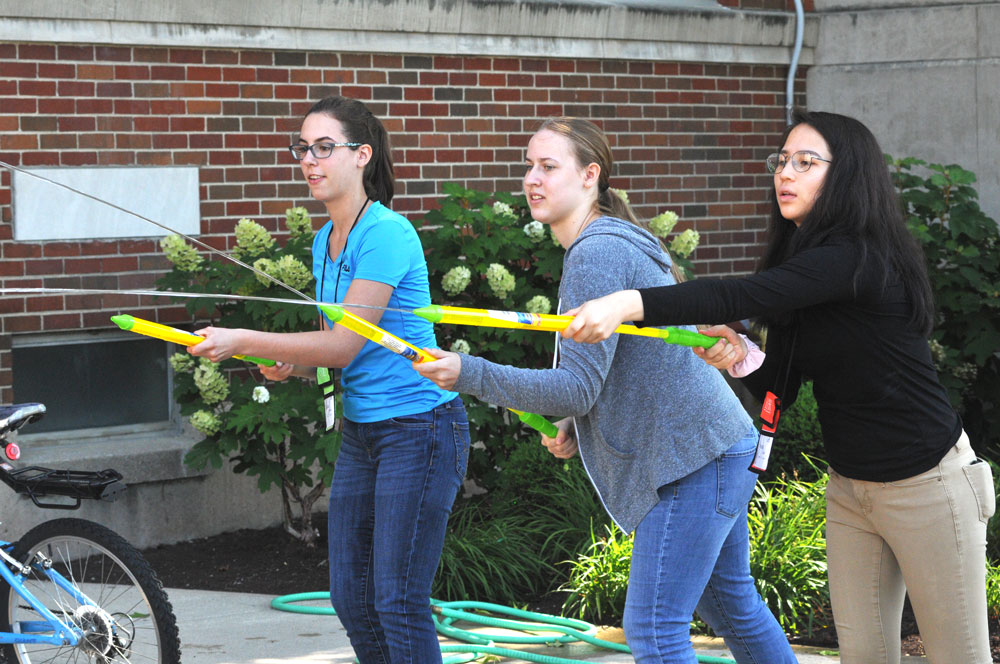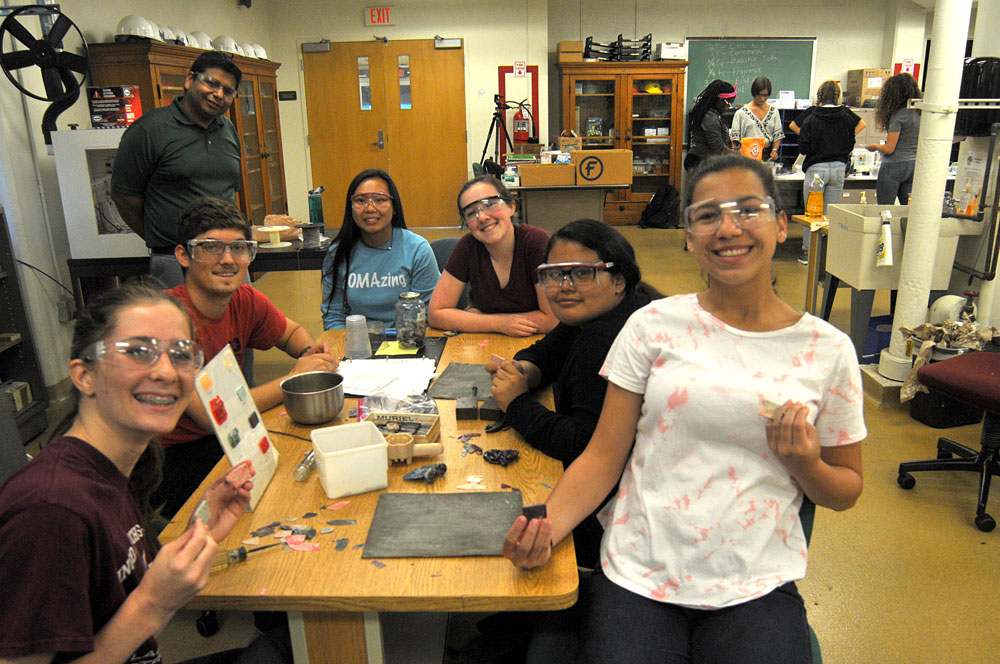We owe it to her
In the early 1970s, there were only four female students in UD’s School of Engineering. The field was notoriously a man’s world, and this is something that Professor Emeritus Carol Shaw — the only female engineering faculty member at the time — knew quite well.
A single sentence uttered by Shaw’s then-boss, Dean of Engineering David Kraft, altered the course of her career, as well as the future careers of thousands of women.
“The Dean of Engineering called me in, and he said, ‘I want you to do something about women in engineering,’” Shaw said. “I thought, ‘What is he talking about?’”
Although hesitant, Shaw dove in.
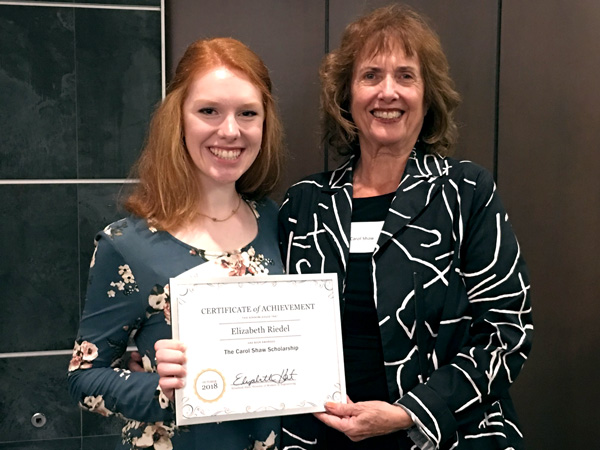
Shaw said, “When your boss does ask you to do something that you have no idea what to do, just trust in the universe, or God or a higher power to support you because if you put your intention to doing it, I think you can do it.”
More than 45 years later, staff, students and experts in engineering are following the very blueprint Shaw created.
The Women in Engineering Summer Camp, established in 1973 and credited as being the first and longest running camp of its kind, brings high school girls to UD and shows the seniors that engineering is not only possible for women, but that it’s exciting and rewarding, too.
Shaw made sure that the camp presented honest information about the field, for both prospective students and parents. In order to do so, she allowed the young girls to meet female mentors, tackle problems and experience days in a laboratory.
Shaw said, “I had the philosophy that programs can change society.”
And in terms of engineering at UD, programs did change the fabric of the University. Over the course of her career, Shaw consistently promoted and executed agendas of diversity and inclusion. As the first female associate dean in the School of Engineering, she was able to advocate for other unconventional engineering students including international students and working mothers.
“One thing led to another in terms of meeting the educational needs of a particular group where they are and designing the educational components to fit their needs,” Shaw said.
In fall 2020, more than 24% of the full-time undergraduate students in the School of Engineering were female.
Shaw earned from the University of Dayton master’s degrees in education in 1968 and chemistry in 1973. She taught engineering students from 1968 until her retirement in 2005. Shaw also served as director of the University’s Center for Competitive Change during her time at the university.
Shaw’s dedication, grit and overall impressive career made others take notice, said Cindy Obringer ’80, a former research engineer at Wright-Patterson Air Force Base. Obringer worked in the dean of engineering’s office as a student and took Shaw’s organic chemistry class. From early on, Obringer looked up to her.
“She was very, very respected, and some people were afraid of her because she made things happen,” Obringer said. “If you told her to do something, I think she took the freedom to figure out what it was and make something happen.”
Years later, Obringer coincidentally became Shaw’s next-door neighbor.
“Our driveways are a foot apart, so definitely we talk to each other,” Obringer said as she reflected on their friendship during the years.
On campus, Laura Kozuh Bistrek ’97, executive director for diversity in engineering, is carrying on Shaw’s message of inclusivity through the ongoing efforts of the engineering department to expand and provide for the whole community. As a former WIE camper herself, Bistrek recognizes the impact it had on her career.
“I attended the WIE Camp in summer of 1991, and participating in the camp was what solidified my decision to go into engineering,” Bistrek said. “The intent of the camp back then is at the heart of the program we still run today. We want to expose students to what engineering is and women engineering role models but also help their decision: 'Yeah, this is something I want to do, and I can do it.’”
Although Shaw — who lives not far from campus with her husband, Phil Hayden — no longer walks the halls of Kettering Lab or the Science Center on a routine basis, her UD legacy lives on. In summer 2020, the WIE Summer Camp took place virtually due to COVID-19. Along with two other engineering camps — the co-ed camp and the multi-ethnic men camp — WIE will again be offered virtually in June 2021 under the SEE-UD brand. Although the format may not be hands-on, the young women were still exposed to all that the field of engineering has to offer.
Additionally, The Carol M. Shaw Women in Engineering Scholarship, founded in 2019, provides former campers with financial need the opportunity to study engineering at UD. Shaw said she hopes the endowment will continue to grow in the coming years. Shaw's donations to UD also recently helped several female students who experienced tuition emergencies to be able to graduate on time.
As she reflects on her career, one key message remains: There is an ever-growing need to sit with the data — or in non-engineering terms, the problem — in order to find a solution.
“It seems to me that there is probably a moment in time for all of us in the workplace where you have to step up and accept a challenge that’s given to you even though at the time you don’t exactly know how to do it,” Shaw said. “The way to come out of that fear is to embrace it, walk into it, and figure it out.”
